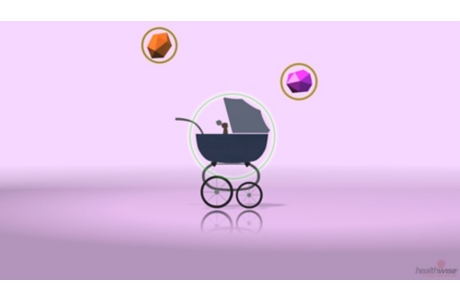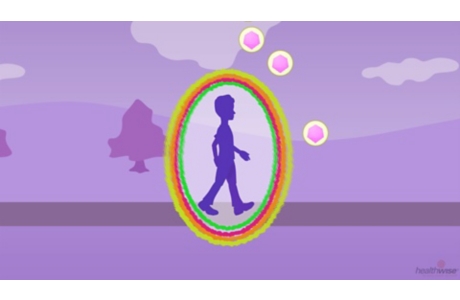Helping Children During Vaccinations
Helping your infant feel better
Your infant (newborn to 12 months) is less likely to be uncomfortable or upset after getting a shot if they are not hungry or tired. You can also help your baby during and after the shot by comforting them.
The following tips may help you.
- See that your baby has a good nap 2 to 4 hours before getting the vaccine.
- Feed your baby 1 to 2 hours before the shot.
- Provide your baby comfort and reassurance during and after the shot.
- Breastfeed or give your baby a bottle or a pacifier.
- Hold your baby close wrapped in a blanket.
- Distract your baby with toys or soothing conversation.
Helping your toddler or young child feel better
The following tips may help decrease discomfort in your toddler (12 months to 3 years) or young child (3 to 9 years) when they get vaccines.
- Talk to your child about the upcoming doctor visit. Talk generally about the visit, but you don't need to focus on getting a vaccine.
- Talk to your child about the vaccine right before it happens.
- Tell your child that they will feel a little pinch that may sting.
- Avoid words like "shot" or "hurt." These can have strong meanings to young children, which can raise their fear of vaccinations.
- Never suggest that vaccines are being given as punishment for misbehavior.
- Act calm and confident to put your child at ease.
- If your child complains, don't criticize your child or apologize. Say that you understand, but that it's important to get vaccinated to protect them from getting sick.
- Ease tension by distracting your child during the shot.
- Blow bubbles.
- Have your child hold a favorite stuffed animal or toy.
- Read a book to your child.
- Talk about fun activities.
Helping your older child or teen feel better
When your school-age child or teen gets vaccines, talk with them about what to expect. This may help reduce their concern about getting shots.
- Ask your child what has helped in the past.
- Teach your child to use relaxation techniques such as deep breathing or thinking about pleasant things.
- Help distract your child.
- Suggest bringing a book or computer game along.
- Talk about subjects that interest your child.
Related Information
Credits
Current as of: September 30, 2025
Author: Ignite Healthwise, LLC Staff
Clinical Review Board
All Ignite Healthwise, LLC education is reviewed by a team that includes physicians, nurses, advanced practitioners, registered dieticians, and other healthcare professionals.
Current as of: September 30, 2025
Author: Ignite Healthwise, LLC Staff
Clinical Review Board
All Ignite Healthwise, LLC education is reviewed by a team that includes physicians, nurses, advanced practitioners, registered dieticians, and other healthcare professionals.





